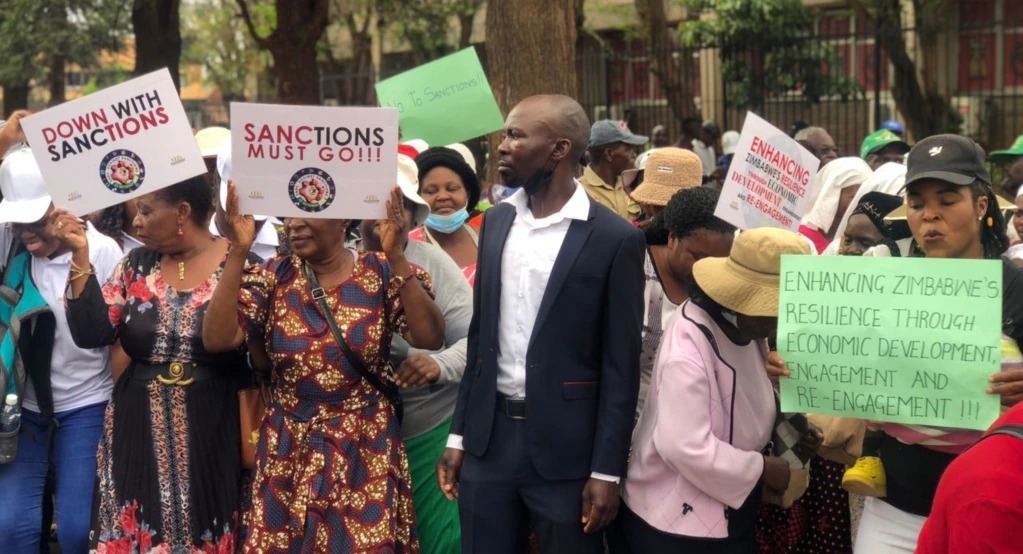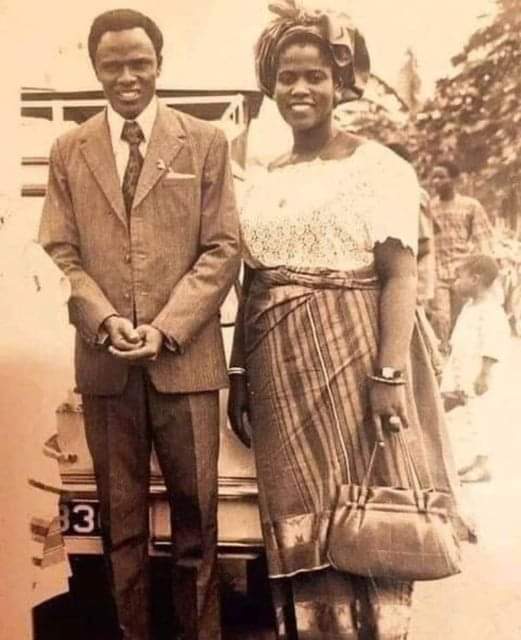BULAWAYO, ZIMBABWE —
Hundreds of Zimbabweans turned out Tuesday for rallies against Western sanctions that the government has long blamed for the country’s economic troubles.
The sanctions, some of which date back 20 years, were imposed in response to alleged election rigging and rights abuses under former President Robert Mugabe, who died in 2019. The United States and Britain maintain the targeted sanctions are not the cause of Zimbabwe’s problems.

About 500 Zimbabweans gathered in the city of Bulawayo on Tuesday for an anti-sanctions rally organized by the ruling ZANU-PF Party.
One of the demonstrators, Mabutho Moyo, said U.S. and British sanctions caused the collapse of Zimbabwe’s economy because industries could no longer get lines of credit.
“People lose jobs, and the loss of jobs leads to poverty,” Moyo said. “And poverty, ultimately, to high mortality rates, as you have seen in Zimbabwe. But as [Zimbabweans], we have remained resilient. We have not allowed ourselves just to cry. And through the leadership of comrade Emmerson Mnangagwa, we are not going to beg for anyone’s support.”
Zimbabwe’s Vice President Constantino Chiwenga read a speech for President Mnangagwa that was aired on national television.
“The sanctions regime undermines the tenets of the human factor approach of nations in pursuit of social sustainable economic development. They are an attack on the freedoms and on the sovereignty of Zimbabwe,” Chiwenga read. “Further, the illegal sanctions defy the fundamentals and precepts of international law. They challenge the notions of equality of nations and values of global governance enshrined in the United Nations Charter.”
U.S., British and European Union officials have long rejected Zimbabwe’s accusations, saying that the sanctions target individuals and certain companies rather than state institutions.
They say mismanagement of the economy is the key factor behind Zimbabwe’s long economic slump, which dates back to 2000.
Last week, James O’Brien, the U.S. State Department’s sanctions coordinator, told an online press briefing that U.S. sanctions are not hurting Zimbabwe’s economy, as they do not affect banks.
A much bigger problem, he said, is the tax revenue lost from billions of dollars in black market, cross-border transactions that take place each year.

On Tuesday, the British embassy in Harare released a statement saying its sanctions list had only five people for “human rights violations and serious corruption.”
It added that “these measures do not affect trade or economic measures. Trade between the U.K. and Zimbabwe was $175 million last year, and we are working hard to increase this.”
The embassy said, “We want Zimbabwe to succeed. Anything to suggest that the U.K. wants to harm Zimbabwe is simply false.”
Harare-based independent political commentator Rejoice Ngwenya also doubts the sanctions have much of an effect.
“Zimbabwe is doing enough business with China and the rest of the world not to even worry who is sanctioning,” Ngwenya said. “We have enough business associations with other countries, and we have been able to attract enough mining from other countries other than the countries of the West. So, corruption, bad governance and inability to run a simple economy is what is causing economic problems in Zimbabwe.”
Zimbabwe declared October 25 “Anti-Sanctions Day” and Mnangagwa’s government called for the protests, asking regional bloc Southern African Development Community (SADC) to support it.
The government said Zimbabwe is still being punished for the land reform program under Mugabe in 2000, which forcefully displaced white commercial farmers from their land and gave it to Black Zimbabweans.
NewLatter Application For Free







